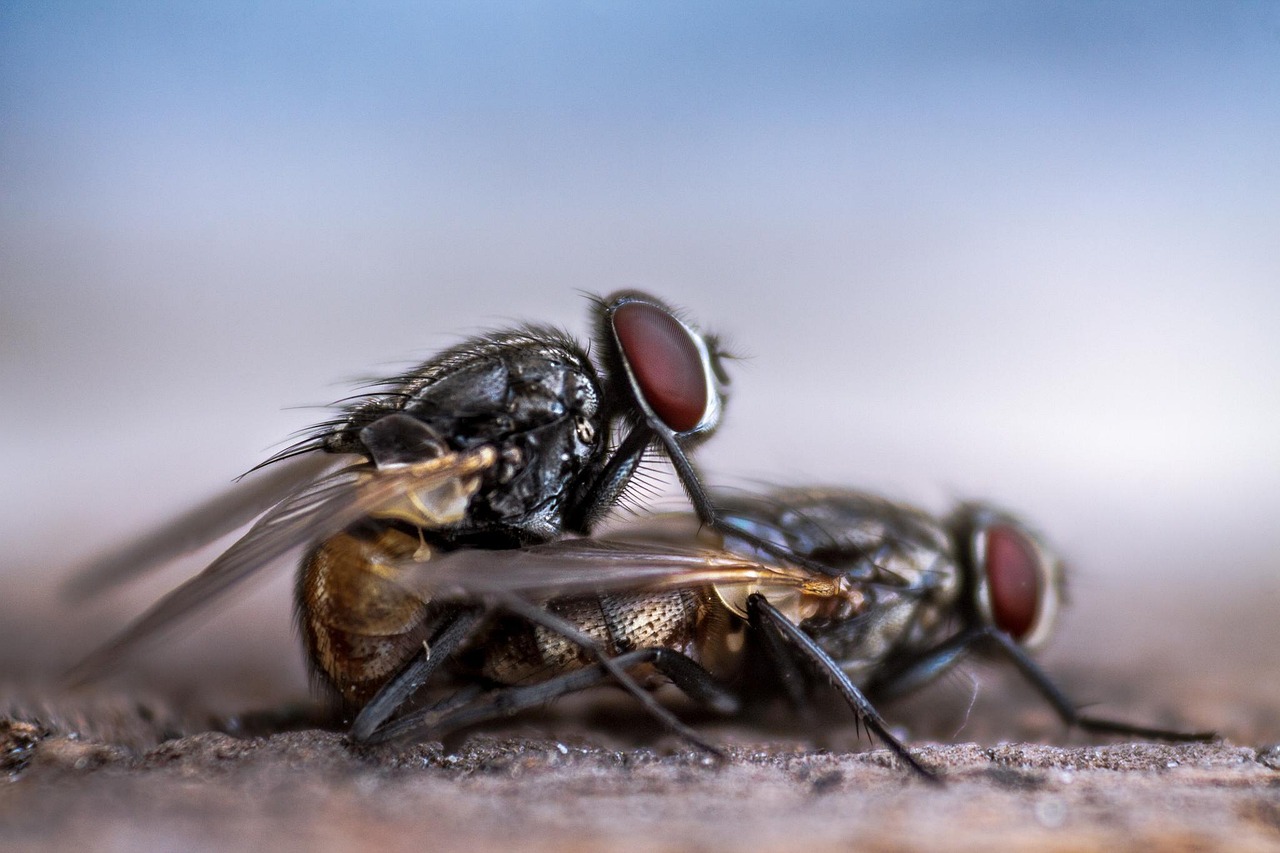
House Flies in the UK: Why They’re a Problem and How to Get Rid of Them
Introduction
House flies might seem harmless at first, but they bring more than just annoyance. As temperatures rise in the UK—especially during summer—house fly activity surges. You’ll see them buzzing around kitchens, bins, or even the fruit bowl. Their constant presence is irritating, but more importantly, they carry diseases and contaminate food. In towns like Didcot and Wallingford, fly problems often spike in June due to favourable breeding conditions. Understanding what attracts them and how to eliminate them helps keep your home or business safe.
What Attracts House Flies?
House flies seek out warmth, moisture, and food. They love uncovered food, waste bins, pet mess, and compost heaps. These common sights around homes and gardens become ideal breeding grounds. Any source of rotting organic material draws flies like magnets.
Summer in the UK offers house flies the perfect environment. Open windows and doors invite them in, especially when food sits out or bins overflow. Even mop buckets and drains with food residues can attract them.
Why House Flies Pose a Risk
House flies spread over 60 different diseases including salmonella, E. coli, and dysentery. Unlike bees or butterflies, flies land on rubbish, faeces, dead animals, and drains—then immediately walk across your plate or food preparation surface.
They don’t bite, but they don’t need to. Flies regurgitate digestive enzymes on food to break it down, contaminating everything they touch. A single fly can carry millions of bacteria. This makes them a genuine health threat, especially in homes with children, pets, or elderly residents.
Common Places Flies Breed and Hide
Flies lay eggs in moist, organic material. In a warm house, those eggs can hatch in as little as 8 hours. Look for fly activity around:
- Kitchen bins and food caddies
- Pet waste or bedding
- Compost heaps
- Drains and waste pipes
- Soggy mop heads or cloths
- Overripe fruit bowls
- Spillages under appliances
The adult fly lifespan can stretch to 30 days, but in that time, one female can lay hundreds of eggs, starting the cycle all over again.
How to Prevent a House Fly Infestation
Prevention is your first line of defence. Here’s how to discourage house flies:
- Clean as you go: Wipe up food spills immediately.
- Store food properly: Cover or refrigerate perishables.
- Secure your bins: Always keep indoor and outdoor bins tightly sealed.
- Clear pet waste daily: Flies love pet faeces and litter trays.
- Block entry points: Fit fly screens on doors and windows where possible.
- Maintain drains: Flush out food residue with boiling water or a drain cleaner.
Effective House Fly Control Methods
If flies already hover around your home or business, you’ll need more than cleaning. Here are several effective options:
1. UV Fly Killers
UV fly zappers work well in kitchens, cafes, and commercial settings. They attract flies with ultraviolet light and kill them on contact.
2. Fly Papers and Sticky Traps
These cost-effective tools catch flies mid-air. Hang them near problem areas, such as windows or back doors.
3. Essential Oils
Strong scents such as eucalyptus, peppermint, and lavender act as fly deterrents. Mix a few drops in water and spray surfaces where flies gather.
4. Aerosol Sprays
Use sparingly in high-traffic rooms. Sprays kill adult flies instantly, but they do not prevent breeding.
When to Call a Professional Pest Control Service
If flies return despite your best efforts, you may face a breeding problem. Rotting waste, blocked drains, or a hidden carcass might allow flies to thrive out of sight.
At Shire Pest Solutions, we carry out thorough inspections across Didcot, Wallingford, and surrounding areas. We find the breeding source, apply targeted treatments, and offer prevention advice tailored to your property. Our solutions are discreet, safe for children and pets, and fully compliant with UK pest control regulations.
House Fly Problems in Didcot and Wallingford
As temperatures rise in South Oxfordshire, many local households and businesses see increased fly activity. Warm, damp conditions—combined with more outdoor dining and open windows—make it easy for flies to invade.
Whether you run a café in Wallingford or live in a detached house in Didcot, fly problems follow similar patterns. Bin areas, alleyways, and compost heaps often contribute to infestations. We frequently treat fly issues for:
- Takeaways and food vans
- Care homes and nurseries
- Family kitchens and conservatories
- Local pubs with beer gardens
- Rented properties with shared waste storage
If flies linger after a clean-up, our professional solutions stop the problem at the source.
Final Thoughts
House flies bring more than an annoying buzz. They carry bacteria, breed quickly, and compromise hygiene. In the warmer months, especially in towns like Didcot and Wallingford, the risk increases.
By keeping bins secure, cleaning food spills, and acting fast when you spot a few flies, you reduce the risk of a full-blown infestation. If you need help, our team at Shire Pest Solutions provides fast, effective treatments across Oxfordshire.
Explore more pest control tips in our Blog section or contact us today to book a fly control survey.




